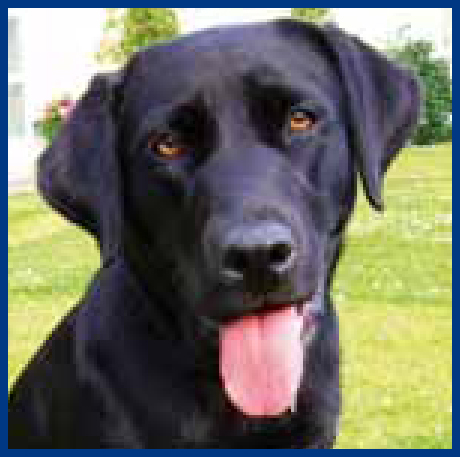
Dogs are the most sensitive investigated to date with a sense of smell that is 10 000 to 100 000 times more sensitive than ours, meaning that they can identify chemical traces in the range of parts per trillion.
For many years this phenomenal power has been put to use in police and narcotics tracker dogs. Towards the end of the 1980s another role for dogs emerged. The story of a dog alerting its female owner to an early malignant melanoma so impressed the dermatologists treating her that they wrote a letter to the Lancet. They described how the dog kept sniffing the skin lesion and on one occasion tried to bite it. It was the dog's behaviour that inspired the patient to visit her doctor, who then identified it as a malignant melanoma. ‘The dog may have saved her life’, concluded the dermatologists.
Following this, researchers successfully trained dogs to identify cancer patients from sniffing breath, skin and stools. Several dog breeds have been used in this simple reward training including Belgian Malinois Shepherd, Labradors and Spaniels. They have detected cancers in breast, gut, ovary, lung, prostate and bladder with an accuracy that usually equals that of clinical diagnostic tools.
A report by Hideto Sonoda and his colleagues at Kyushu University, Japan published online on 31st January 2011 in the journal Gut, revealed that a black Labrador trained to detect colorectal cancer was 97% accurate, while colonoscopies have an accuracy of 91% in colorectal cancer diagnosis. The dog was also much more sensitive to early forms of the cancer than routine screening. The use of dogs to sniff out cancer patients in the laboratory or the clinic is not, according to the authors, a real option. Skill varies significantly between dogs; trainers, operators and dog retirement plans would be needed. Each dog can do only five tests a day and after 10 years they would need to be retired. Furthermore, the simple reward procedure would mean that a dog's accuracy could decrease over time with errors being compounded by incorrect rewards.
Scientists are therefore focusing on what it is that the dogs are detecting. These unknown molecules must be volatile in order to be smelt, hence their scientific name of volatile organic compounds (or if you prefer acronyms — VOCs). There have been some tentative steps towards identifying such molecules in the breath of patients with breast and lung cancer using a combination of gas chromatography and mass spectroscopy. Interestingly, each cancer appears to have its own specific molecule or combination of molecules.
There is no reason why VOCs should be limited to cancer diagnosis. In 1993 Phillips, Savas and Greenberg found in the breath of schizophrenia patients high levels of pentane and carbon disulfide. So other diseases and their VOCs should also be detectable by specially trained dogs. This extraordinary sensitivity of canine olfaction in combination with the amazing powers of communication between humans and dogs is potentially a huge resource for the diagnosis of many diseases. Perhaps we could now call that old joke apocryphal?
A man brought a limp duck into a veterinary surgery. He laid it on the table and the vet listened to the bird's chest with her stethoscope. ‘I am sorry’, she said ‘your duck has passed away’.
‘Are you sure?’ the distressed owner murmured.
‘Yes I am, your duck is definitely dead’, replied the vet.
‘But you haven't done any tests — mightn't the duck be in a coma?’ He wanted the very best for his dear duck.
So the vet agreed; she left the room to return a few minutes later with a black Labrador Retriever. The dog put its front legs up on the table and sniffed the duck along its body. It then looked up at the vet, shook its head and lowered its tail.
The vet patted the dog, took it out of the room and returned a few minutes later with a cat. The cat jumped on the table and also sniffed the duck from head to tail. It then meowed softly, and left the room.
The vet looked at the man and said, ‘I am sorry, but as I said the duck really is dead. That will be £180 please’.
‘£180, just to tell me that my duck is dead?’
‘Well, if you'd taken my word for it the bill would have been £20, but with the lab report and cat scan it's now £180’.
